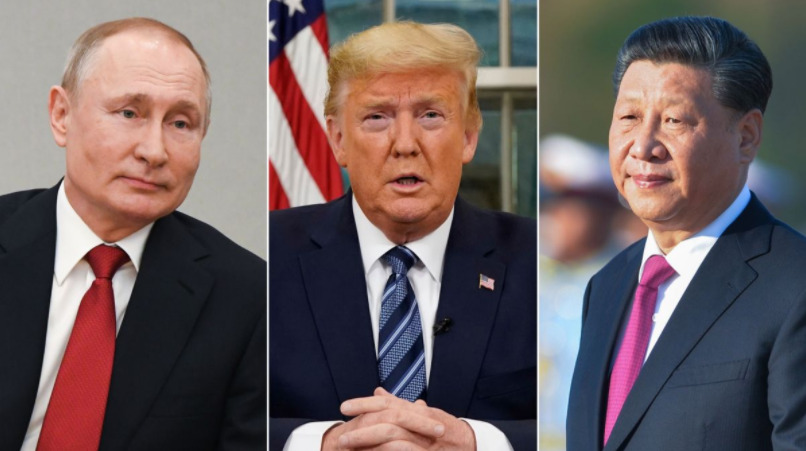The USA is leaving the Open Skies Treaty, which allows the treaty-bound countries to fly unarmed aerial surveillance flights over each other’s territories and helps avoid the development of a trust deficit. After its withdrawal, an emotional statement has come from China, which interestingly is not even a party to the treaty.
The withdrawal has left the two previous cold war rivals with only one treaty, that is the Arms Control Treaty, which will too most likely lapse in February next year without any further commitment. The Donald Trump administration has already made it clear that there is no need for arms control treaty if China is not a party to it. And with China declining to join it, the treaty lapsing in Feb 2021, will be free for the entire globe.
It is a really interesting development, as the most aggressive critique of the decision of the United States comes from China. The Chinese Foreign Ministry Spokesperson during his daily Monday briefing said that the move by the USA undermines “military mutual trust and transparency among relevant countries, is not conducive to maintaining security and stability in relevant regions and will also have a negative impact on the international arms control and disarmament process.” The withdrawal is not at all directly related to Beijing, but the statement signal that, instead of Russia, it was China which was more hurt.
The Open Skies Treaty is designed to allow inculcation of mutual understanding and confidence-building by giving all participant countries an equal opportunity to gather information about military activities of other member countries. Although signed and started the provisional application in 1992, the treaty came into full effect on, January 1, 2002, and allowed 34 participating countries including Russia, to fly their aircraft over each other’s territory. The essence of the treaty is to avoid the risk of military miscalculations that can lead to uncontrolled escalation and even all-out war.
Experts and critiques alike are expressing their views on such Chinese actions. The country, while urging other countries to reach arms control agreements, has itself stayed away from any such pact and has simultaneously kept on increasing its share of GDP in military spending and defence budget. Thus, if one goes by this assessment, then, the US withdrawal and the imminent expiration of the Nuclear Arms Treaty on 5th February will be most disastrous for China, as it will not be able to grow on the expense of the USA and Russia anymore.
For quite some time, it was becoming clear that the USA was all set to withdraw from the Open Skies Treaty, given the tone of statements from President Donald Trump and Secretary of State Mike Pompeo. While Trump said, “Russia did not adhere to the treaty, so until they adhere, we will pull out,” Secretary of State Mike Pompeo said that “It has become abundantly clear that it is no longer in America’s interest to remain a party to the Treaty on Open Skies.”
On the other hand, the Russian response has been more mature and balanced, unlike the childish response of the Chinese. Moscow has raised concerns on, how will the other signatories of the Open Skies Treaty will handle the information obtained under the treaty after the US withdrawal, and just added their disappointment.
Russian consultant Andrey Baklitskiy wrote in a commentary for the Carnegie Moscow Center last year that the arms control agreements and arrangements are helpful to China to decrease the power differential based on the military capabilities. He stated, taking the INF treaty as the straw man, that it “acted as a security guarantee for China: Beijing successfully made use of the mutual limitations imposed by the treaty on Russia and the United States to minimize the military threat to itself.”
The expiration and withdrawal of multiple arms control treaties are less beneficial to the party countries, but a boon for China which has long maintained the facade of selling itself as a developing country and a smaller power, but all the while, strategically decreasing the power, military and economic differential between itself and the USA. By urging the US to be committed to the arms control treaties and itself amassing huge military capabilities and weaponry it is proving the point in real-time.
